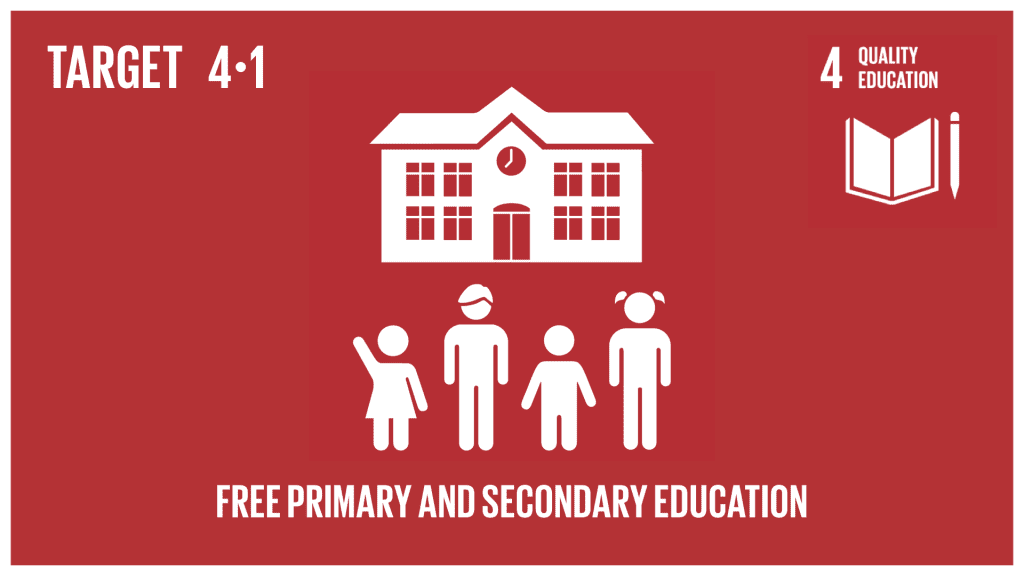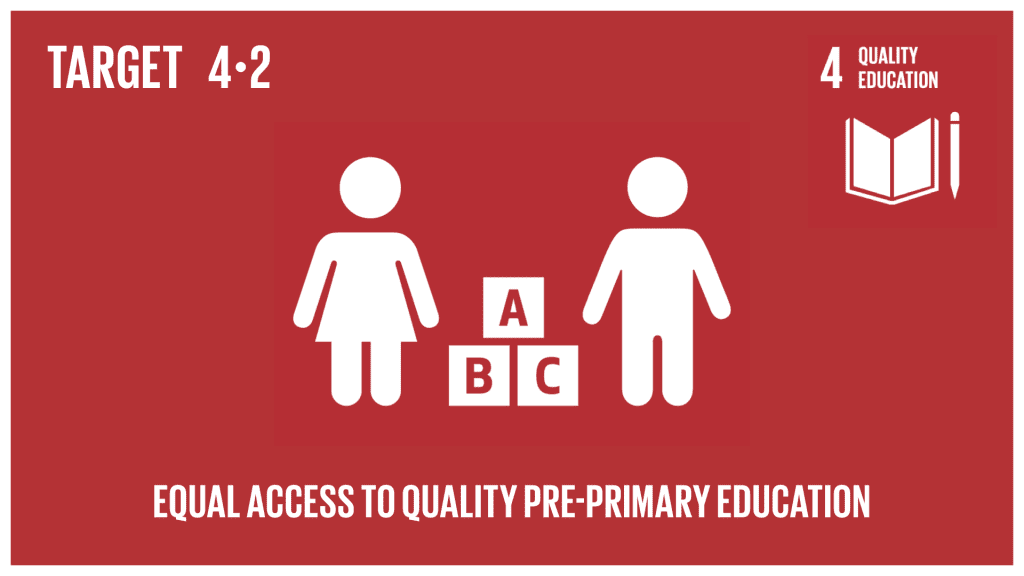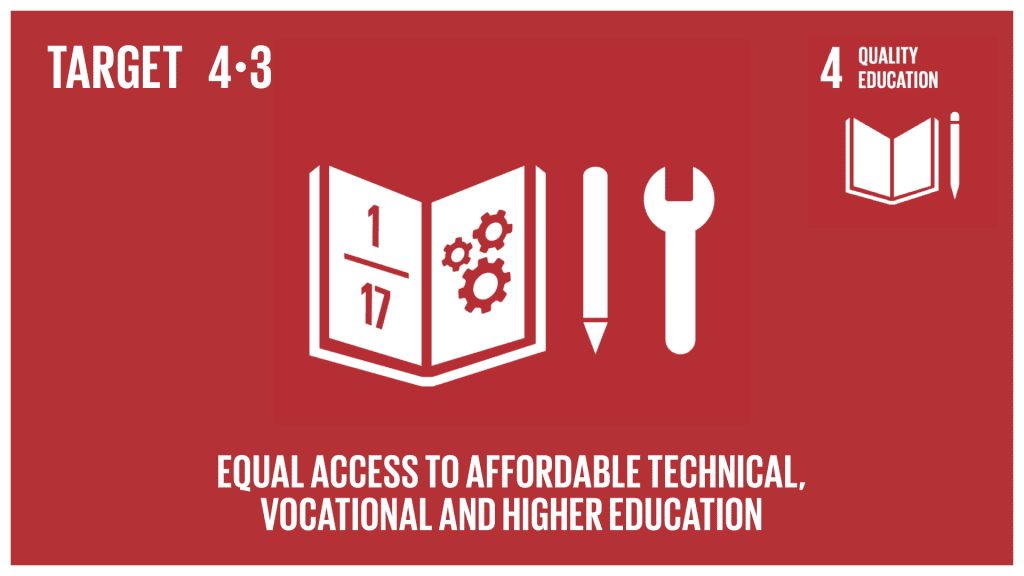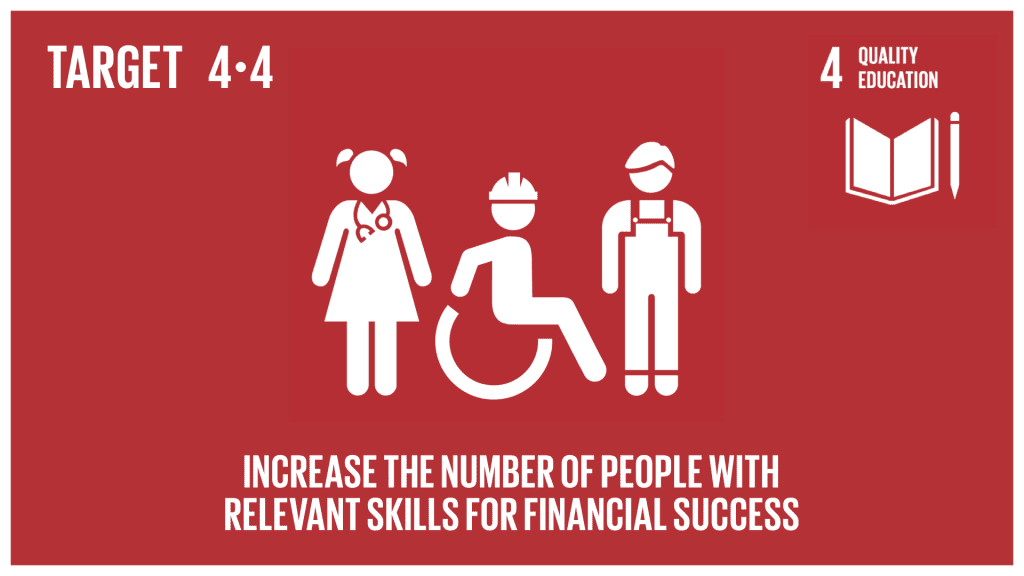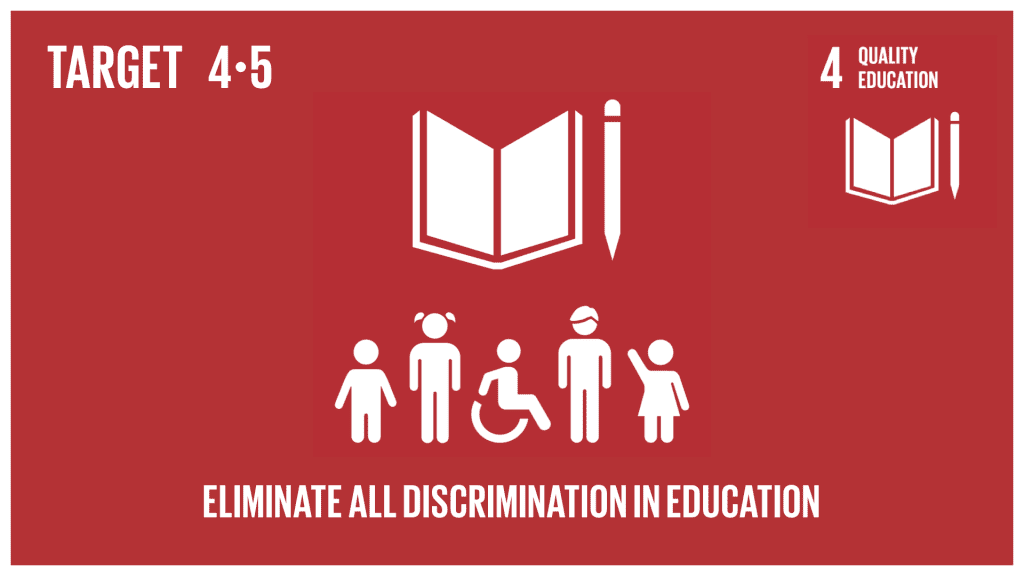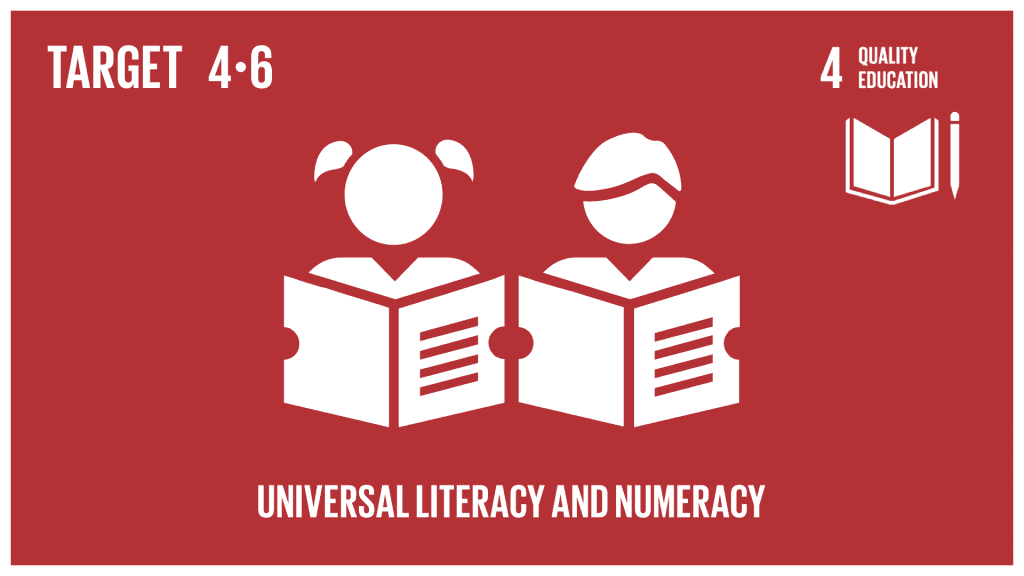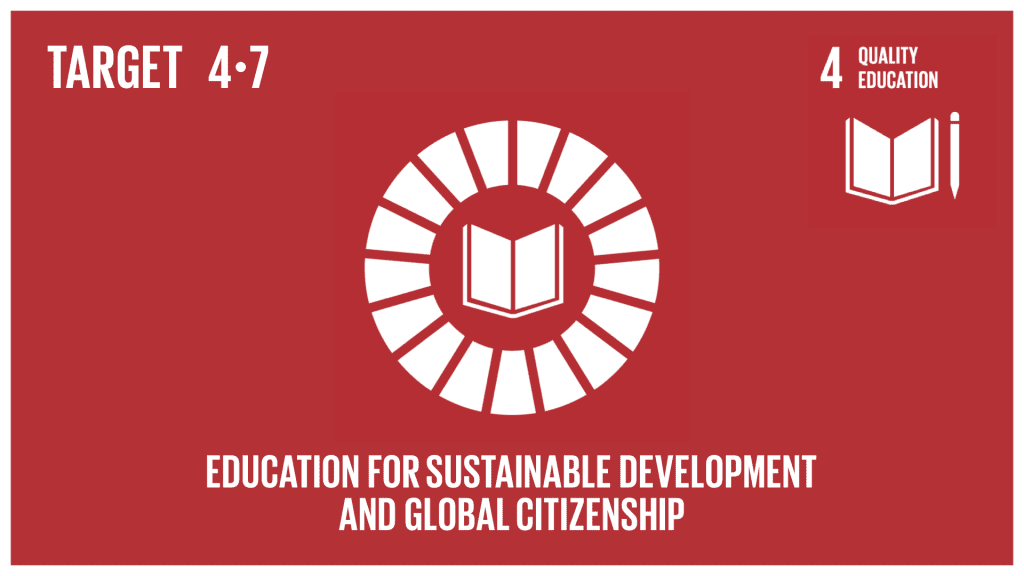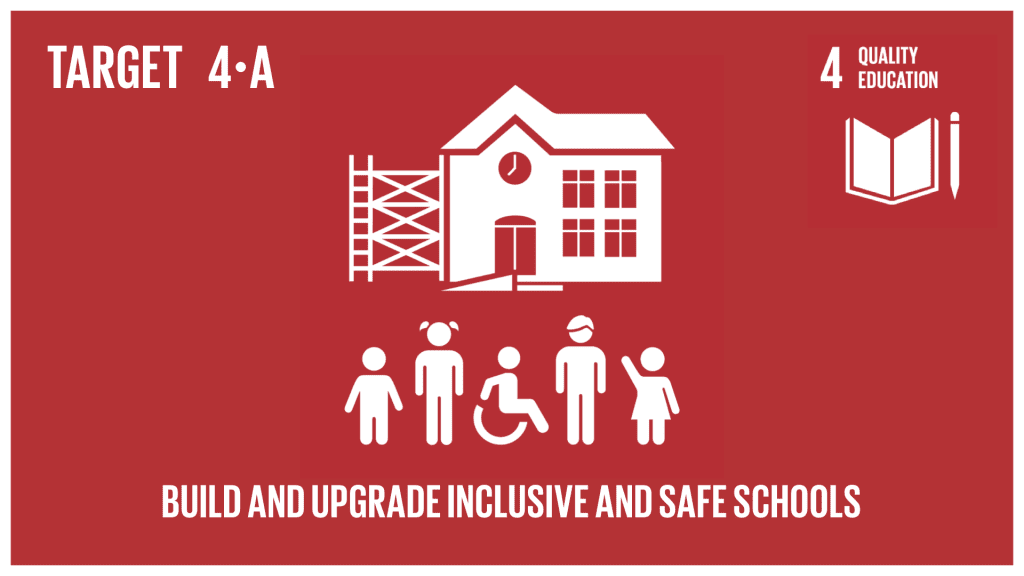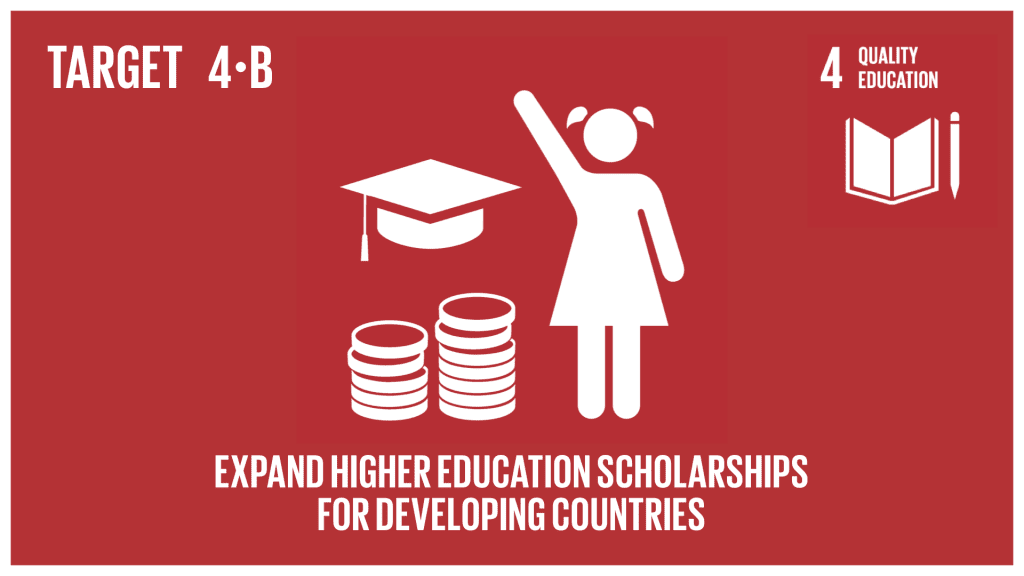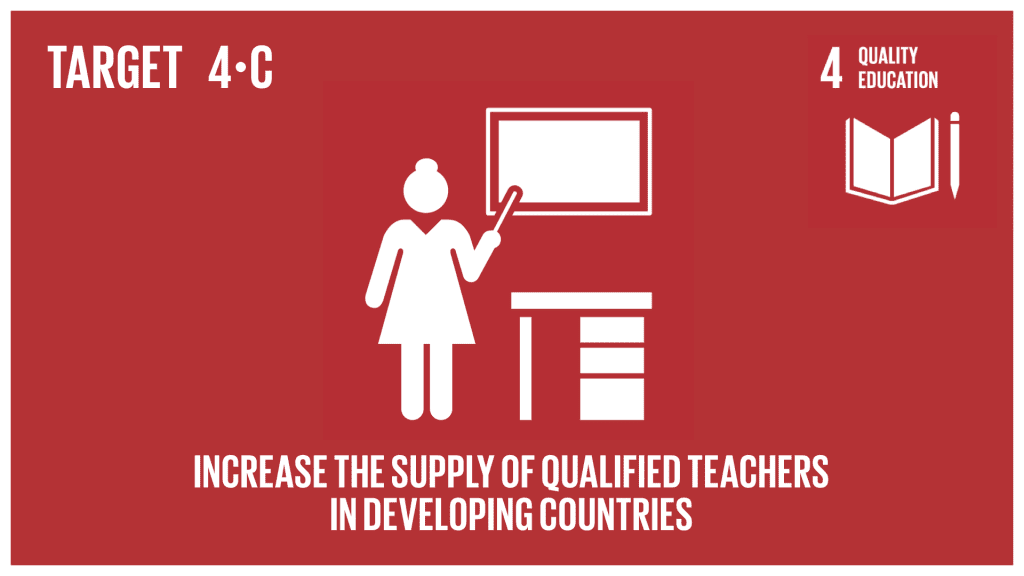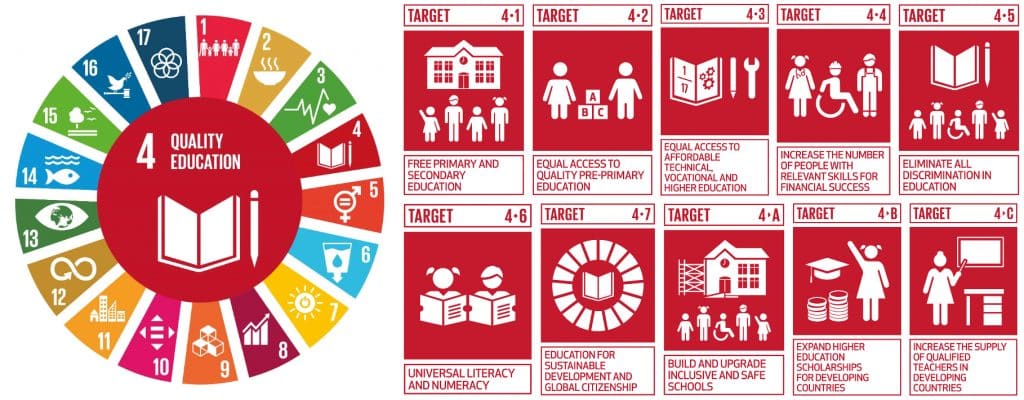Global Massive Open Online Challenge (GMOOC) 2021
The Challenge is a global COMPETITION for students, which requires massive CREATIVITY, encourages open COLLABORATION, and offers learning through online COURSES to help address the UN Sustainable Development Goals locally.
OFFICIAL LAUNCH ON JANUARY 2021.
Please refer to the updated timeline below.
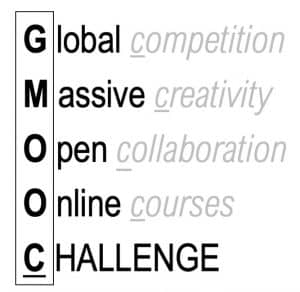
Who can participate?
University students who are passionate about social innovation and SDG are welcome to participate. We welcome students from all faculties and majors, and from around the world.
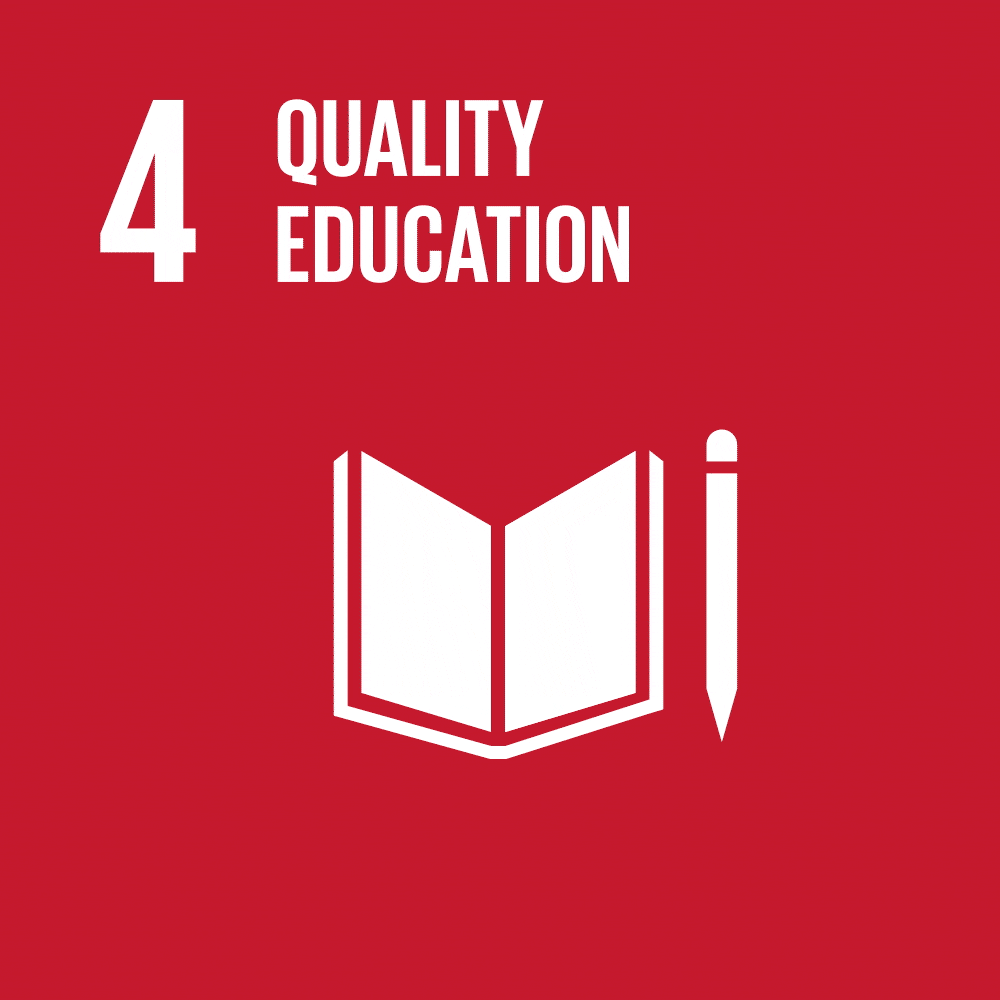
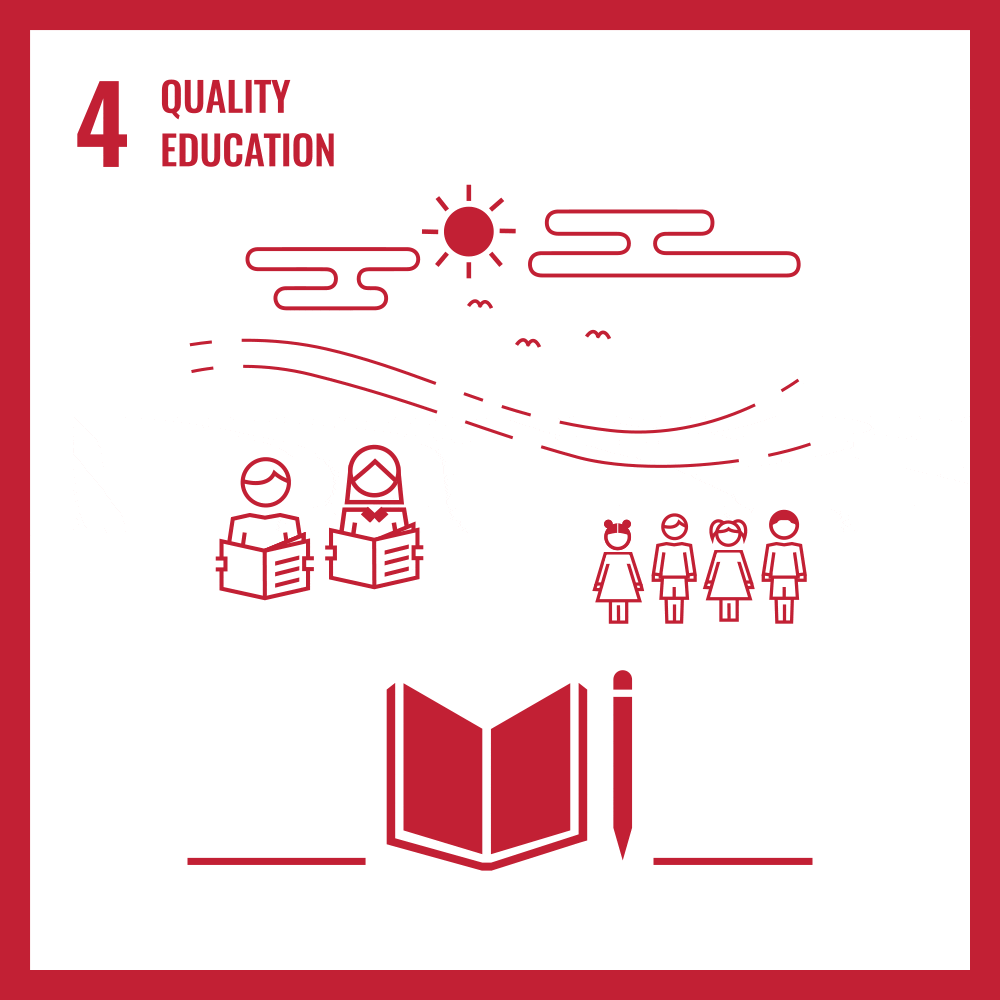
Why join the Challenge?
- Receive academic transcript from Tsinghua University for 1 credit on innovation practice
- Receive certificate of completion by Tsinghua University & University of Geneva & UNITAR (United Nations Institute for Training and Research)
- Compete as a team and win a cash prize up to 1,500 USD
- First prize (1 team per track), 300 USD per each team member
- Second prize (2 teams per track), 200 USD per each team member
- Third prize (3 teams per track), 150 USD per each team member
- Present your winning ideas in front of a global audience (for winning teams) at Global MOOC & Online Education Conference 2021 and UNESCO International Day of Education 2022
- Receive valuable feedbacks (written and video) from experts and mentors
- Work together in an international virtual team and get inspiring SDG ideas
- Experience an intense entrepreneurial journey of “from zero to one”
When is the Challenge?
Courses/ Asynchronous mode (until November 18)
- [Until November 18] Register at https://www.xuetangx.com/course/2018380KC004605 for online course and complete all the required components, including the final indiviudal assignment:
- Choose one of the ten SDG 4 targets as the primary focus
- Title of your project idea
- Written abstract (100-150 words) of your idea
- [Optional] Presentation (MAX 5 slides) of your idea:
- problem (why), users (who), value (what), delivery (how), next steps (when)
- From November 19-23, mentors will review all individual assignments submitted by deadline and provide written feedbacks/ comments
COLLABORATION/ asynchronous mode (by November 23)
- [By November 23] The teaching team will also assign all students who submitted individual assignment into teams of 3-5.
- Team will be assigned based on alignment on SDG4 targets or user segments, and where students are from (to ensure diversity and that not all members of the team are from the same university)
Creativity/ mix mode (From November 26-28)
- [November 26-28] “Mentor clinics” on Zoom will be opened for students to practice pitching and get advice.
- [By November 28, 10:00 AM, Beijing time (GMT+8)] Each team will record a video pitch and submit a final presentation (MAX 5 mins)
Competition/ Synchronous mode (November 28)
- [Novmeber 28, 11:00 AM – 13:00 PM, Beijing time (GMT+8)] Judges will be reviewing all the submitted projects , live on Zoom webinar. Public viewing will be made accessible, though it is not complusory to attend
- [November 28, 14:00 PM, Beijing time (GMT+8)] Announce winning teams
- First prize (1 team per track), 300 USD per each team member
- Second prize (2 teams per track), 200 USD per each team member
- Third prize (3 teams per track), 150 USD per each team member
- [November 28, 16:30-20:30 PM, Beijing time (GMT+8)] SDG Open Hack FINAL. One winning team from all 20 tracks will do a final presentation with Q&A session from judges, to compete as the FINAL winner of SDG Open Hack
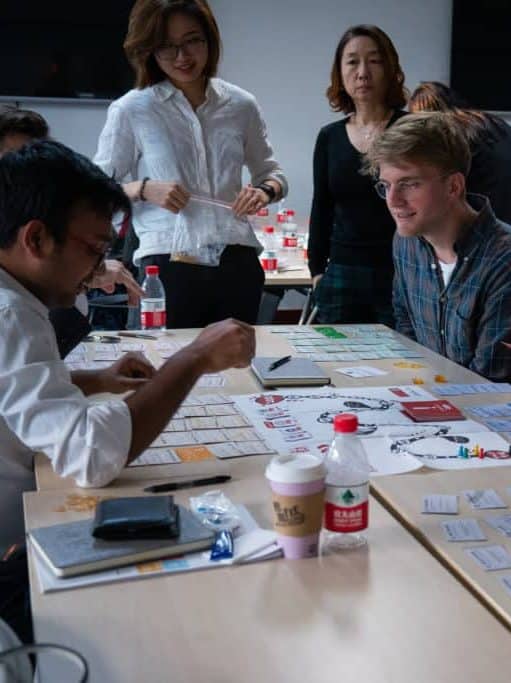
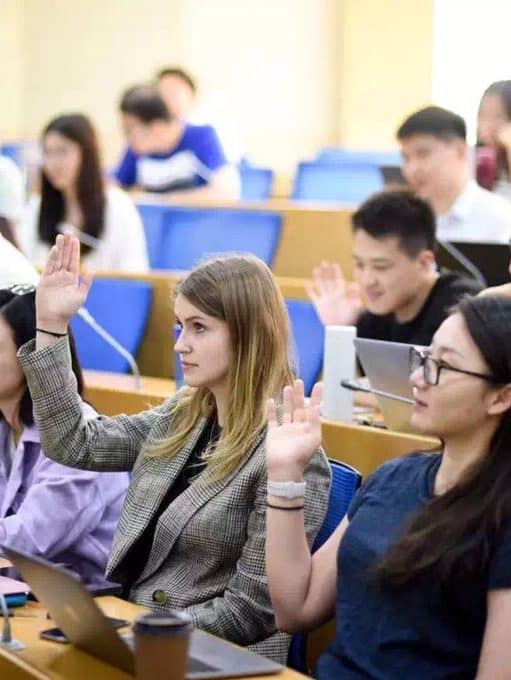
What’s next? Register through completing the online course NOW
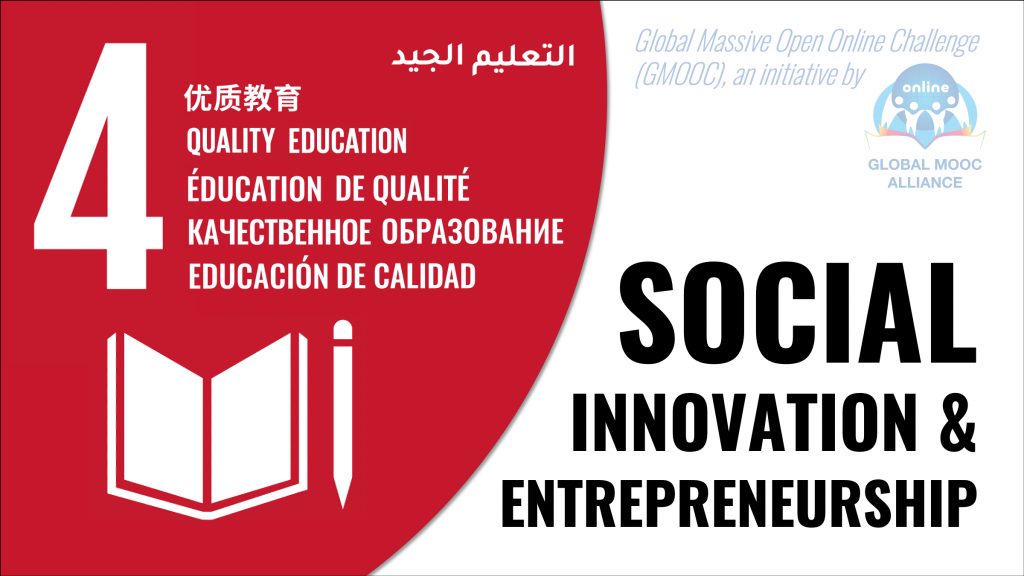
About SDG Open Hack 2021
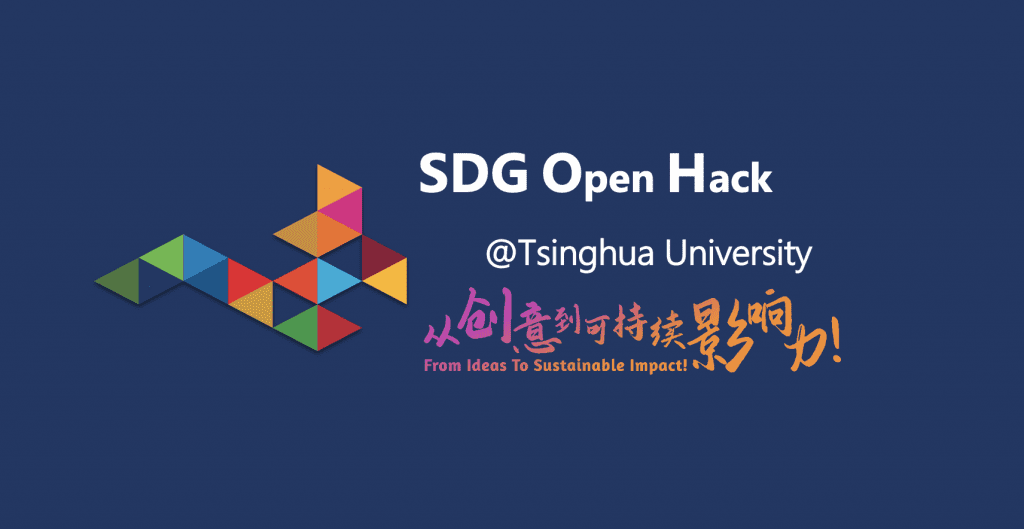
From Nov 27 to 28, students will participate in a 24-hour hackathon challenge, with close to 20 different topics at the same time. Each hackathon event will be led by Hack Leaders who are distinguished faculty members or expert practitioners. On the afternoon of Nov 28, there would be a grand final of the competition.
Students are encouraged to choose a hackathon with the theme that they are best interested in; and form an Innovation Team during the event. Each team should focus on the Challenge to come up with a Creative Solution. Professional experts will be invited as mentors and judges for each hackathon. The best Team will be selected to compete in the final presentation and award ceremony.
The SDG Open Hack is open to all university students from around the world, regardless of faculty or major. Due to the pandemic, the event will be held mostly online, with both asynchronous and synchronous components.
Hack3 and Hack4 of SDG Open Hack
Hack 3: “Equitable quality education”/ basic education track
- Target 4.1: Free primary and secondary education
- Target 4.2: Equal access to quality pre-primary education
- Target 4.5: Eliminate all discrimination in education
- Target 4.6: Universal literacy and numeracy
- Target 4.A: Build and upgrade inclusive and safe schools
- Target 4.C: Increase the supply of qualified teachers in developing countries
Hack 4: “Lifelong learning for all”/ post-secondary track
- Target 4.3: Equal access to affordable technical, vocational and higher education
- Target 4.4: Increase the number of people with relevant skills for financial success
- Target 4.7: Education for sustainable development and global citizenship
Hack 1, 2, 5, 6, …. are topics across different SDG.
The 2030 Agenda for Sustainable Development
The Agenda is “a plan of action for people, planet and prosperity”. It comprises of 17 Sustainable Development Goals (SDGs). These goals are indivisible and encompass economic, social and environmental dimensions.
Sustainable Development Goal 4 (SDG 4) is the education goal
It aims to “ensure inclusive and equitable quality education and promote lifelong learning opportunities for all.”
SDG 4 is made up of 10 targets and their respective indicators:
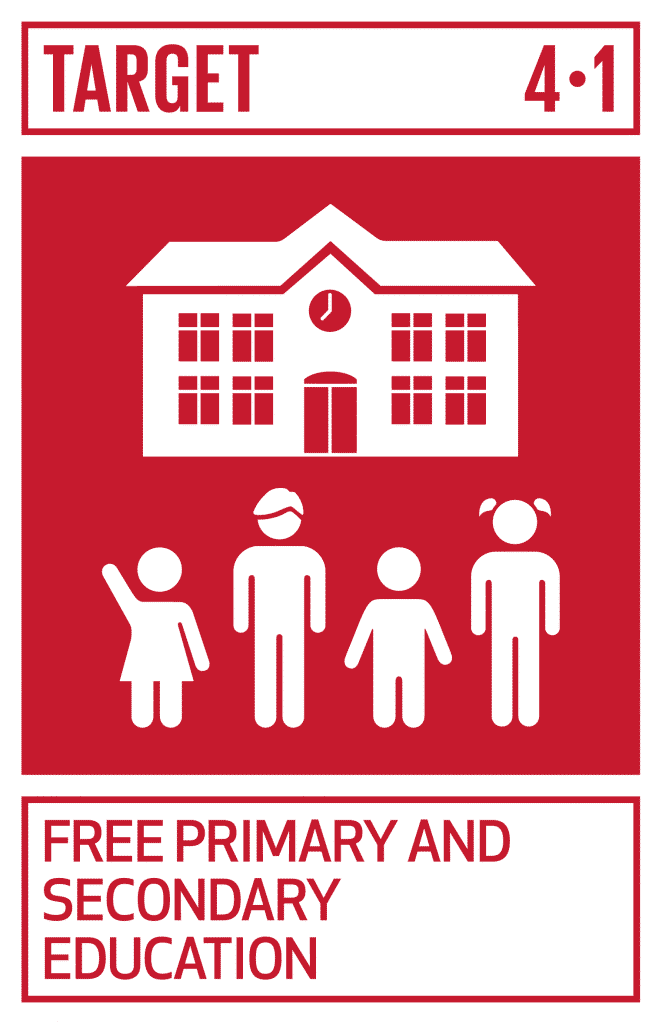
FREE PRIMARY AND SECONDARY EDUCATION
By 2030, ensure that all girls and boys complete free, equitable and quality primary and secondary education leading to relevant and effective learning outcomes.
4.1.1
Proportion of children and young people: (a) in grades 2/3; (b) at the end of primary; and (c) at the end of lower secondary achieving at least a minimum proficiency level in (i) reading and (ii) mathematics, by sex
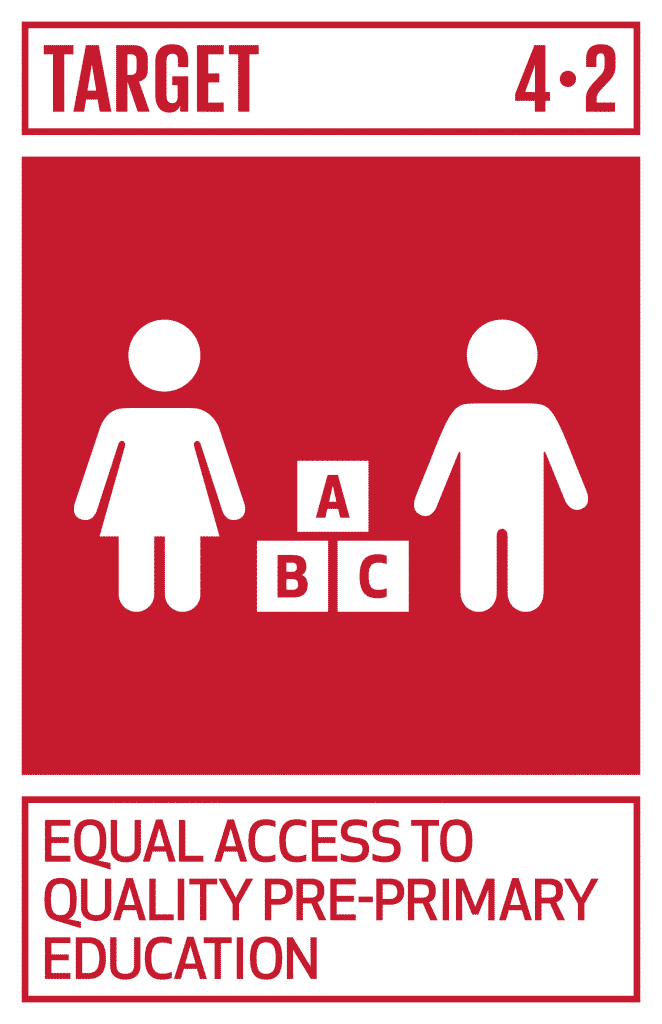
EQUAL ACCESS TO QUALITY PRE-PRIMARY EDUCATION
By 2030, ensure that all girls and boys have access to quality early childhood development, care and pre-primary education so that they are ready for primary education.
4.2.1
Proportion of children under 5 years of age who are developmentally on track in health, learning and psychosocial well-being, by sex
4.2.2
Participation rate in organized learning (one year before the official primary entry age), by sex

EQUAL ACCESS TO AFFORDABLE TECHNICAL, VOCATIONAL AND HIGHER EDUCATION
By 2030, ensure equal access for all women and men to affordable and quality technical, vocational and tertiary education, including university.
4.3.1
Participation rate of youth and adults in formal and non-formal education and training in the previous 12 months, by sex

INCREASE THE NUMBER OF PEOPLE WITH RELEVANT SKILLS FOR FINANCIAL SUCCESS
By 2030, substantially increase the number of youth and adults who have relevant skills, including technical and vocational skills, for employment, decent jobs and entrepreneurship.
4.4.1
Proportion of youth and adults with information and communications technology (ICT) skills, by type of skill
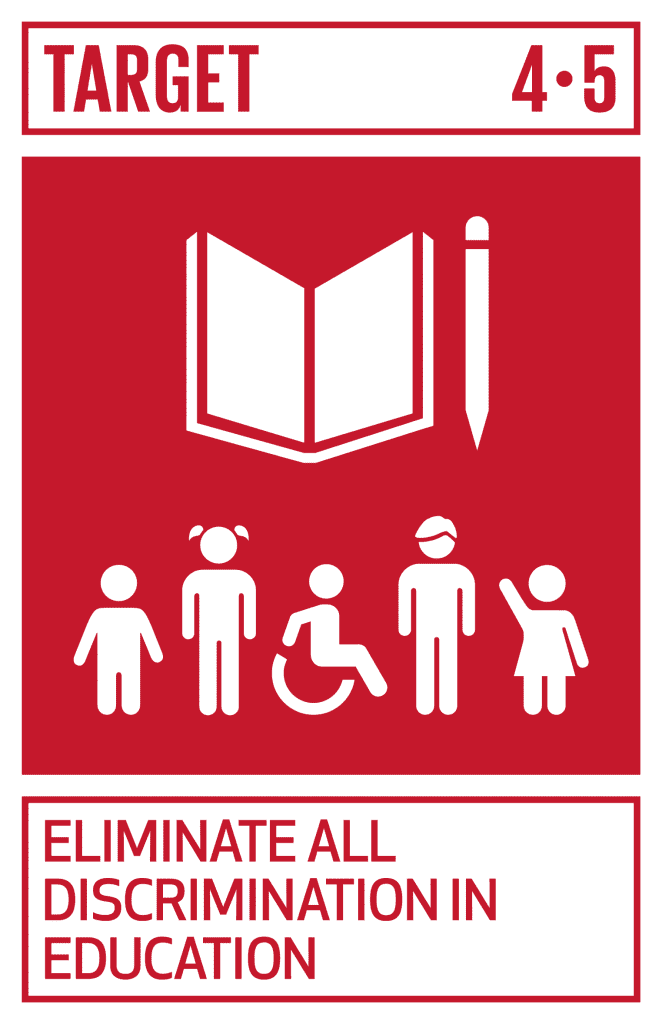
ELIMINATE ALL DISCRIMINATION IN EDUCATION
By 2030, eliminate gender disparities in education and ensure equal access to all levels of education and vocational training for the vulnerable, including persons with disabilities, indigenous peoples and children in vulnerable situations.
4.5.1
Parity indices (female/male, rural/urban, bottom/top wealth quintile and others such as disability status, indigenous peoples and conflict-affected, as data become available) for all education indicators on this list that can be disaggregated
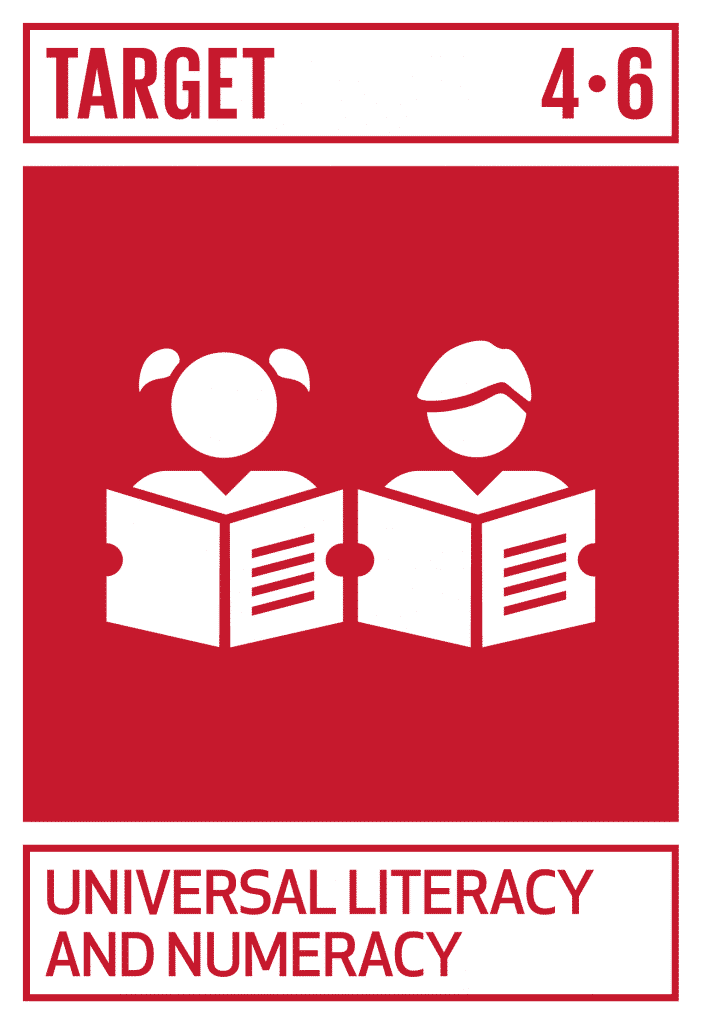
UNIVERSAL LITERACY AND NUMERACY
By 2030, ensure that all youth and a substantial proportion of adults, both men and women, achieve literacy and numeracy.
4.6.1
Percentage of population in a given age group achieving at least a fixed level of proficiency in functional (a) literacy and (b) numeracy skills, by sex
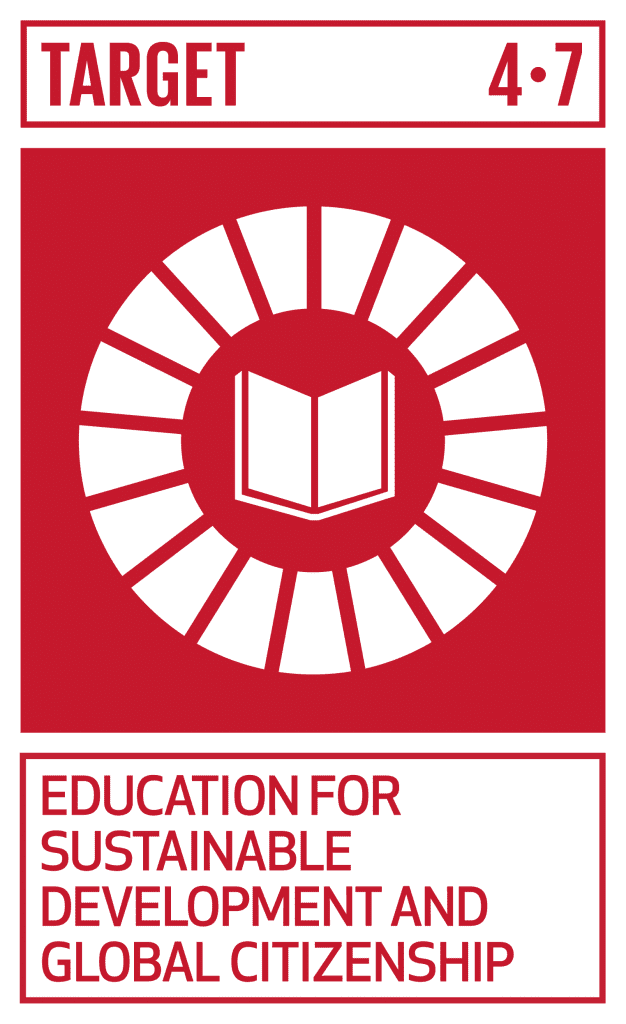
EDUCATION FOR SUSTAINABLE DEVELOPMENT AND GLOBAL CITIZENSHIP
By 2030, ensure that all learners acquire the knowledge and skills needed to promote sustainable development, including, among others, through education for sustainable development and sustainable lifestyles, human rights, gender equality, promotion of a culture of peace and non-violence, global citizenship and appreciation of cultural diversity and of culture’s contribution to sustainable development
4.7.1
Extent to which (i) global citizenship education and (ii) education for sustainable development, including gender equality and human rights, are mainstreamed at all levels in: (a) national education policies, (b) curricula, (c) teacher education and (d) student assessment
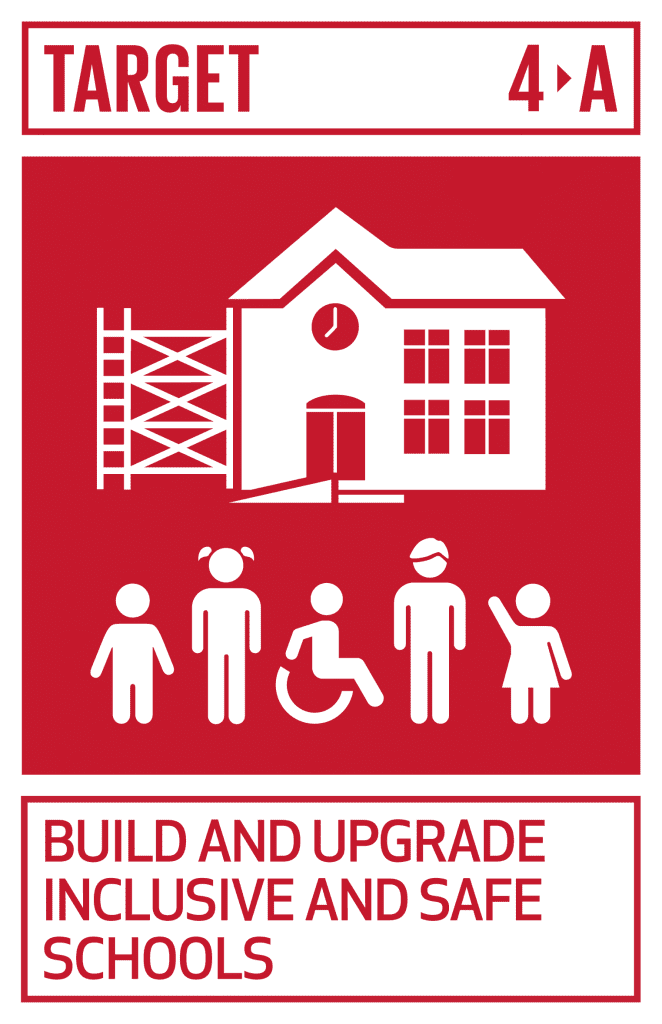
BUILD AND UPGRADE INCLUSIVE AND SAFE SCHOOLS
Build and upgrade education facilities that are child, disability and gender sensitive and provide safe, non-violent, inclusive and effective learning environments for all
4.a.1
Proportion of schools with access to: (a) electricity; (b) the Internet for pedagogical purposes; (c) computers for pedagogical purposes; (d) adapted infrastructure and materials for students with disabilities; (e) basic drinking water; (f) single-sex basic sanitation facilities; and (g) basic handwashing facilities (as per the WASH indicator definitions)
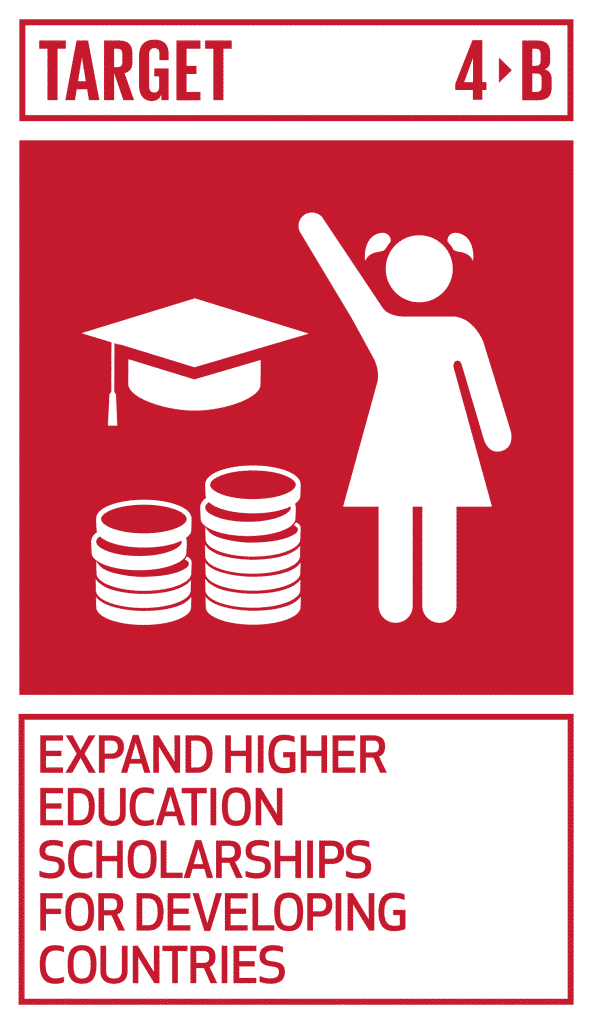
EXPAND HIGHER EDUCATION SCHOLARSHIPS FOR DEVELOPING COUNTRIES
By 2020, substantially expand globally the number of scholarships available to developing countries, in particular least developed countries, small island developing States and African countries, for enrolment in higher education, including vocational training and information and communications technology, technical, engineering and scientific programmes, in developed countries and other developing countries.
4.b.1
Volume of official development assistance flows for scholarships by sector and type of study
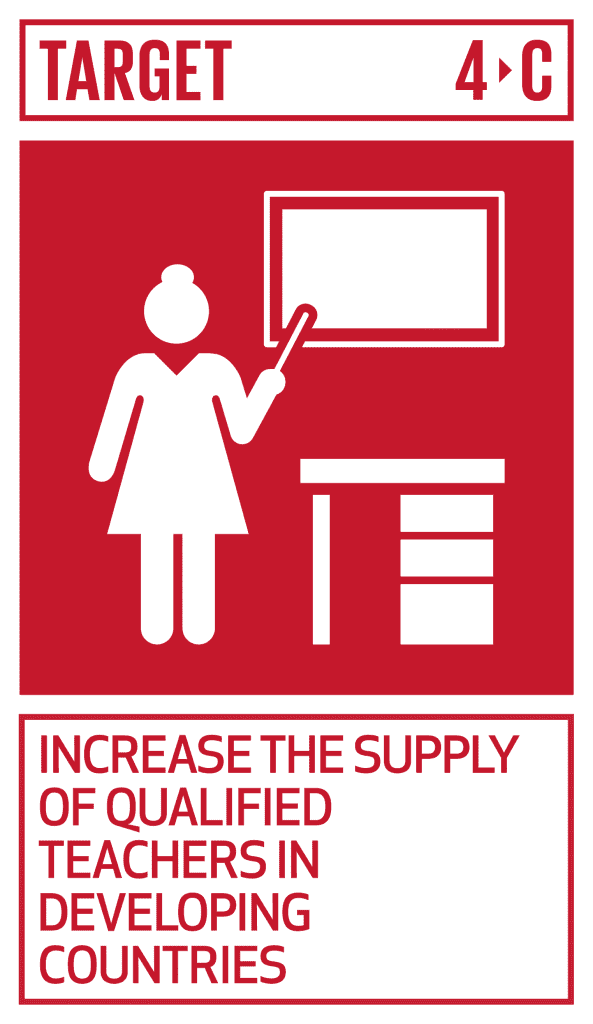
INCREASE THE SUPPLY OF QUALIFIED TEACHERS IN DEVELOPING COUNTRIES
By 2030, substantially increase the supply of qualified teachers, including through international cooperation for teacher training in developing countries, especially least developed countries and small island developing StatesIndicators
4.c.1
Proportion of teachers in: (a) pre-primary; (b) primary; (c) lower secondary; and (d) upper secondary education who have received at least the minimum organized teacher training (e.g. pedagogical training) pre-service or in-service required for teaching at the relevant level in a given country
Any questions?
Get in touch at [email protected]

